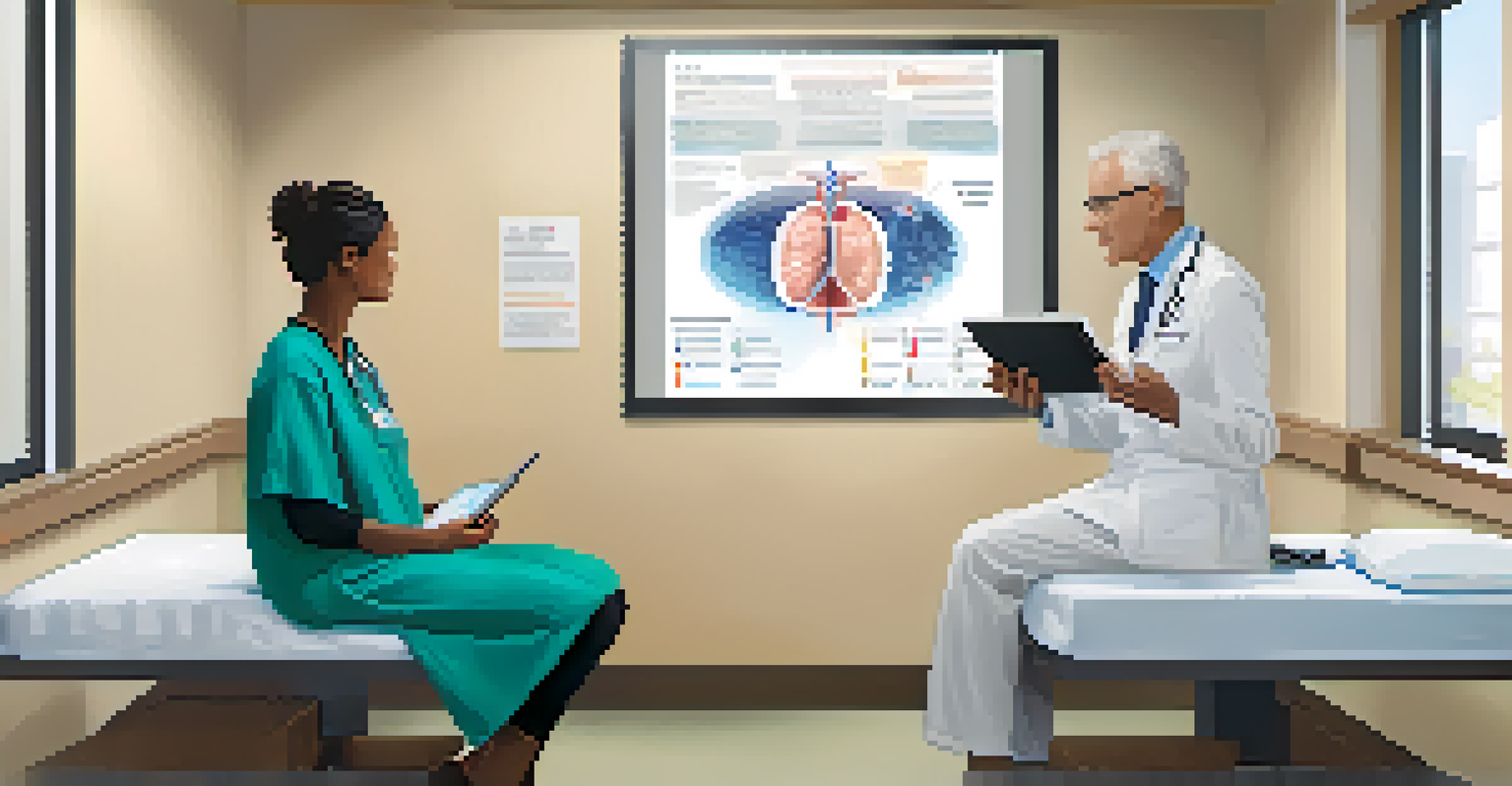Breast Health Awareness: Early Detection and Prevention Tips

Understanding Breast Health: Why It Matters for Everyone
Breast health is crucial not just for women, but for everyone. Understanding the importance of breast health can empower individuals to take proactive steps in their wellness journey. It's about more than just awareness; it's about fostering a culture of health where early detection can save lives.
An ounce of prevention is worth a pound of cure.
Many may think breast health is solely a women’s issue, but men can also develop breast-related conditions. This highlights the need for everyone to stay informed about breast health. Knowledge is a powerful tool in combating diseases like breast cancer, which is why understanding the basics is essential.
Incorporating regular check-ups and self-exams into your routine can significantly improve the chances of early detection. The sooner a potential issue is identified, the better the outcomes. So, let’s delve deeper into how you can stay informed and proactive about breast health.
The Importance of Regular Breast Self-Exams
Breast self-exams are a simple yet effective way to become familiar with your body. By performing these exams regularly, you can quickly notice any changes or abnormalities. It’s like getting to know a friend really well; you’ll notice when something feels off.

To perform a self-exam, simply look for changes in size, shape, or texture of your breasts. Use your fingers to feel for lumps or irregularities while standing in front of a mirror. This practice can be done monthly, making it a manageable addition to your self-care routine.
Breast Health is for Everyone
Understanding breast health is essential for all individuals, as both men and women can experience breast-related conditions.
Remember, while self-exams are important, they are not a substitute for professional screenings. If you notice anything unusual, don’t hesitate to consult with a healthcare provider. Early detection through self-exams can lead to earlier intervention and better health outcomes.
Mammograms: The Key to Early Detection
Mammograms are specialized X-rays that can detect breast cancer in its early stages. They are recommended for women starting at age 40, but those with higher risk factors might need to start earlier. Think of mammograms as a crucial safety net in your breast health journey.
The greatest wealth is health.
The process is quick and non-invasive, typically taking less than 30 minutes. Many women feel anxious about the procedure, but knowing that it can lead to early detection can provide peace of mind. It’s a small investment of time that can yield significant health benefits.
If you have a family history of breast cancer or other risk factors, talk to your doctor about when to begin receiving mammograms. Regular screenings can help catch potential issues before they become more serious, ensuring that you stay one step ahead.
Healthy Lifestyle Choices for Breast Health
Maintaining a healthy lifestyle plays an integral role in breast health. A balanced diet rich in fruits, vegetables, and whole grains can help protect against various diseases, including cancer. Just like a car runs better on quality fuel, your body functions best when nourished with the right foods.
Regular physical activity is also crucial. Aim for at least 150 minutes of moderate exercise each week. This not only helps manage weight but also reduces the risk of breast cancer and other health conditions. Think of exercise as a way to invest in your future self.
Regular Check-ups Save Lives
Incorporating self-exams and professional screenings into your routine can lead to early detection and significantly better health outcomes.
Additionally, avoiding excessive alcohol and tobacco can further enhance your breast health. Small changes in your daily habits can lead to significant improvements over time. By prioritizing a healthy lifestyle, you’re taking an active role in prevention and overall well-being.
The Role of Genetics in Breast Health
Genetics can play a significant role in breast health, especially for those with a family history of breast cancer. Certain gene mutations, like BRCA1 and BRCA2, can increase the risk of developing breast cancer. Understanding your family history is essential in assessing your own risk.
Genetic testing is available for those who may be at higher risk. This can provide clarity and help in making informed decisions regarding health screenings and lifestyle choices. It’s like having a map that guides you on your health journey.
If you find that you carry a gene mutation, discuss preventive measures with your healthcare provider. They can offer tailored strategies to help manage your risk, emphasizing the importance of proactive health management.
Communicating with Your Healthcare Provider
Open communication with your healthcare provider is vital for maintaining breast health. Don’t hesitate to ask questions about your breast health, screening schedules, or any concerns you may have. They are your partners in health, ready to help you navigate your wellness journey.
If you notice any changes during self-exams or have concerns about your family history, bring these up during your visits. Being proactive can help you receive the best possible care and guidance. It’s like having a trusted coach in your corner, cheering you on.
Support Networks Empower Health
Engaging with friends, family, and support groups fosters a community that encourages proactive measures for breast health.
Remember, your healthcare provider is there to support you. Establishing a good rapport can empower you to take charge of your breast health. Together, you can create a personalized plan that fits your unique needs.
Support Networks: The Power of Community
Having a support network can significantly impact your journey towards better breast health. Friends, family, and support groups can provide encouragement and share experiences. It’s comforting to know you’re not alone on this path; others are walking it with you.
Consider joining local or online support groups focused on breast health awareness. These communities can offer valuable resources, share personal stories, and provide emotional support. It’s like being part of a team where everyone is invested in each other’s well-being.

By engaging with others, you can raise awareness and empower one another to prioritize breast health. Together, we can create a ripple effect that promotes proactive health measures and strengthens community bonds.